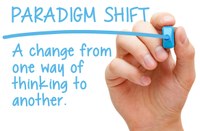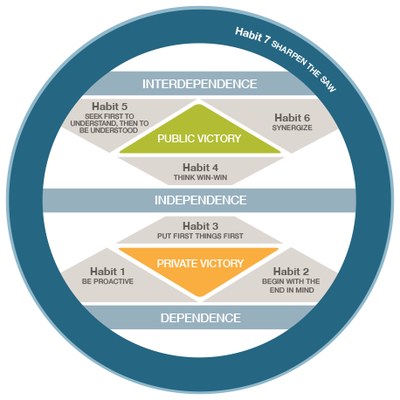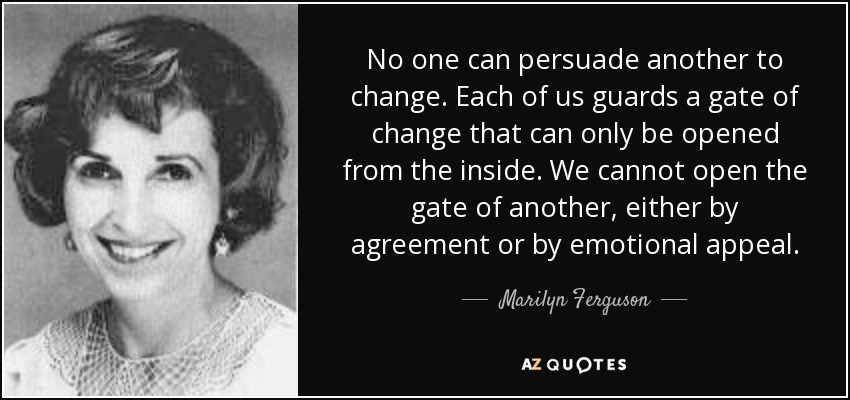Shift Your Paradigm to Open the Gate of Change

After the busyness of the December holiday season with shopping, parties, family get-togethers, and reconnecting with your spiritual traditions, most of us come into January with a sense of renewal, hope, and optimism. It is within this spirit of renewal that we often make commitments to improve ourselves. We promise to eat better, to exercise more, to lose weight, or to be a better spouse. These New Year’s Resolutions often start with great vigor in early January only to see us lose interest by the end of February. We are usually ineffective in operationalizing these changes into our daily lives in a durable way. However, we all know some among us who are highly effective and who seem to accomplish goals they set with consistency and excellence. What do they have that many of us don’t?
Thank goodness there is help for the ineffective among us. The book, The Seven Habits of Highly Effective People (Stephen Covey, 1989) has sold over 25 million copies over the past 30 years and has become one of the most durable self-help books ever written. The purpose of reading this book is to change…to change how you act and how you interact with others. These seven habits are based on foundational principles (like fairness, justice, dignity, service, honesty, integrity) that are guidelines for human contact. Covey uses these character-based principles to force us to change the paradigm from which we operate. 
The first three habits are considered “private victories” because they are aimed at making us better as individuals, moving us from dependence (characterized by a need for others to take care of us, and blaming others for bad results) to independence (characterized by a sense of self-reliance, the ability to choose and do things on our own). These private victories include:
- Be proactive: We are responsible for our own lives and our behavior is a function of our decisions, not our conditions.
- Begin with the end in mind: It means to know clearly where we are going so that we see where we are now and that the steps we take are always in the right direction.
- Put first things first: This habit is about organizing your time and energy to execute around priorities, balancing urgency and importance for each decision we make.
- Think win-win: This habit uses an approach that values and respects people, seeing life as a cooperative, not a competitive arena. It manifests as a frame of mind that constantly seeks mutual benefit in all human interactions.
- Seek first to understand, then to be understood: Use empathetic listening with the intent to understand, not the intent to reply.
- Synergize: This habit makes you recognize that the whole is greater than the sum of its parts, so use the strengths of people through teamwork to achieve goals that could not have been done by any members of the team alone.
The seventh habit is all about renewal and is called:
- Sharpen the saw: This is how you renew your physical, spiritual, emotional and social resources to have sustainable, long-term change so the other six habits stick and you continue to improve for a lifetime.

So what are you going to do now?

Only you can open your gate of change. Recognize that the decision to change must come from within. Commit to reading the 7 Habits book by Stephen Covey in 2020. Just imagine a workplace where everyone is committed to working on these habits in 2020. That would undoubtedly make UofL a great place to learn, a great place to work, and a great place to invest.
Tell us what you learned from the book, email HSCFacDv@Louisville.edu with the word 7Habits in the subject line.
Happy New Year.